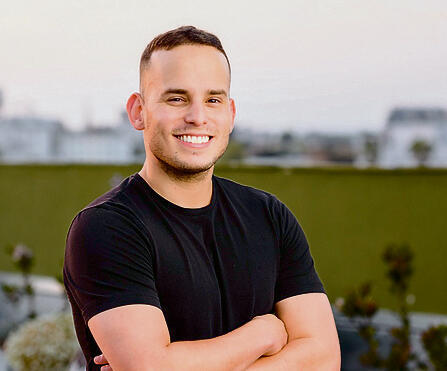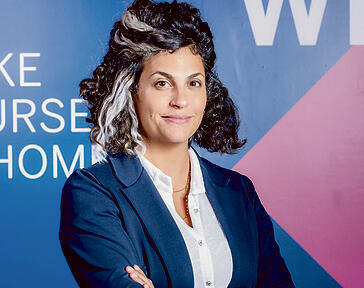To an outsider, the current state of Israel's high-tech sector might seem perplexing. Over the past six months, nearly every day brings news of a cybersecurity company being acquired by an international firm. According to IVC research, cyber exits in Israel hit a record $7.1 billion in 2023. However, this isn't the whole story.
In other high-tech areas, both foreign and local venture capital investments have dwindled in 2023 and seem to follow this downward trend. Early-stage startups are struggling to secure funding, with investors predominantly interested in artificial intelligence. While defense industries are expanding and recruiting, the high-tech sector is still experiencing layoffs.
"The big global players in cyber are making acquisitions one after another in Israel because of the global cyber arms race. And on the companies' side, some entrepreneurs realize the ability to fulfill the dream and grow to an IPO is currently limited," says Avi Hasson, CEO of "Startup Nation Central", a nonprofit organization connecting Israeli high-tech to foreign investors.
On a global scale, early-stage startup investments grew by 6% in the first quarter of 2024, particularly in AI, green energy, and electric vehicles, as per Crunchbase, a company that provides information about businesses. Yet, in Israel, startups outside the cyber and AI sectors are finding it tough. "Early-stage companies suffer the most because, in such a situation, venture capital funds tend to support the 'children' they already have, rather than thinking about adopting new ones (i.e., investing in new companies)," says Hasson.
How badly did the tech sector suffer due to the war?
Hasson: "On the face of it, one could expect a real collapse. Investors had difficulty coming here, 15% of the high-tech workforce was in reserves, and all the uncertainty. But in practice, we did not see a collapse. When looking at the six months of the war and the ten months preceding it, we see a similar picture. This picture is tens of percent lower than the peaks of 2021, but in my opinion, most of it is not due to Israeli factors, but global ones. A high-interest environment, a decline in global technology investments, and the difficulty of global venture capital funds in raising new money.
"Since 2009, we have been in 15 years of growth, and we forgot that the market can also go down. To say that foreign investors are leaving Israel because they did not make a single investment in the country in 2023, is an incorrect view. There are many investors, including Israelis, who did not make any investments due to market conditions, interest rate environments, and uncertainty regarding raising the next fund. These are phenomena similar to what we saw in previous downturn cycles in global high-tech. Another reason is the judicial overhaul. Foreign investors thought: 'Let's wait and see if the legislation passes,' while Israeli investors had already changed their behavior before it passed and slowed down investments. And then the war piled on, where the resilience of Israeli high-tech stood out more than anything."
Guy Katsovich, founding partner at the venture capital fund Fusion, adds: "In the peak years of 2021-2022, companies raised large amounts according to the valuations of that time, but today the market has changed, the multipliers have dropped, valuations have dropped, except in the cyber and AI fields, and these companies are in trouble because they can no longer raise just based on a dream."
Fusion specializes in pre-seed startups, the initial investment phase often funded by founders, with small, high-risk checks of $150,000. Despite a market slowdown, Katsovich is accelerating investments. "We are a slightly different player in the industry. Since October 7, we have made over 17 investments in the Israeli market. We are very active because it is part of our fund's model – a pre-seed mechanism that provides first checks to early-stage entrepreneurs, and we like to invest in times and areas that others avoid. The numbers have dropped compared to the years 2021-2022, but those were abnormal years. A pace of investments of 4-6 billion dollars a year, as we see now, in Israeli startups is the norm."
According to him, "As always in this industry, good companies will continue to raise, and entrepreneurs in hot fields who bring innovation will succeed in raising, and funds will continue to chase them, and we will continue to see dozens of such deals this year too. The result will be a market where most of the money and resources are concentrated in a few companies, and they will take the whole pot."
800 companies have applied for aid
The Innovation Authority stepped in to support struggling companies, incentivize investors, and minimize the increased risk premium of investing in Israel post-war. A survey by the Authority showed that 50% of early-stage companies could only cover salaries for five more months. The Authority's investments are aimed at encouraging institutional bodies to invest in venture capital funds, alongside a dedicated fund of about $136 million for direct grants to startups with dwindling funds due to the war. They approved grants amounting to $111 million for 251 companies.
Kerem Nevo, VP of Growth at the Innovation Authority, explains: "Even before October 7, we saw the change in investor preferences, from focusing on companies' growth potential to focusing on their revenues. We started thinking back then about what to do so that Israeli companies do not lag in competition with companies worldwide, and the war only emphasized the need. The first step was establishing a bridge loan or first aid fund for companies that got stuck with the runway (survival horizon), for those who, after the last year and a half, thought they would raise after the holidays, and then what happened; and of course for companies that have already accumulated significant intellectual property and assets but have less than six months of salary money left.
"Most of the important venture capital funds in Israel did not make a single investment in the past 18 months," she continues. "We saw investors sitting on the fence. We wanted to take them off the fence and reduce their risk by having the companies receive government funding from the Authority, as long as it is backed by matching funding. We are giving 30%-50% of the amount required for companies to survive for nine months – provided the private market enters and gives the complementary percentage. But this is not a long-term plan; it's a band-aid, and this fund is almost depleted.
"About 800 companies applied, and we approved about 40% of them. The criteria were significant assets and proof that the companies were directly affected by the war and did not already struggle before, with a clear bias towards deep-tech (innovation-based technology), health, and climate companies."
How many of the 300 found investors would allow the grant to be realized?
"We know that a significant percentage managed to bring the money, but it is still early to say. Initially, we estimated a demand of only 150-300 companies, not 800. We did not expect the flood of requests we received. This made me worry that the distress is truly significant."
3 View gallery


Guy Katsovich, founding partner at the venture capital fund Fusion
(Photo: Yarin Taranos)
What about the data showing fewer and fewer startups are being founded over the years?
"That is true, but it is not necessarily undesirable. We want to see a healthy balance between early-stage high-risk companies that will become the next generation of successful companies, growth companies that already know how to generate revenue, and multinational companies thriving in Israel. Our role is to maintain the balance. For example, we saw that the next generation of deep-tech companies might be too small and that we need to push there, especially in hardware companies, where the ability to get funding is complex because technology takes longer to mature and is much more dependent on regulation. Investors tend to avoid the field and prefer another app, game, or enterprise software instead, where they know how to reach profits and returns. So the Authority reduces the risk for them. We have 200 people whose job is to be technological examiners in various fields, who know how to conduct financial and technological due diligence on these companies and understand their growth potential."
Noam Kanti, a managing partner at the consulting and accounting firm Ernst & Young Israel, sees a convergence of circumstances that will lead to more Israeli entrepreneurs founding new startups. "We are at the beginning of a period where we will see more startups being founded. The artificial intelligence revolution is resetting many fields and creating a new window for entrepreneurs. At the same time, after a long period where unicorns and multinational companies absorbed the talent for accelerated growth, many entrepreneurs are now 'released' to the market to start new startups as the companies they worked for are sold or their growth halted. But unlike previous crises like in 2008 and 2001, investors have a lot of available capital to invest."
Another factor strengthening Israeli startups is the tech giants that have established startup incubators in Israel, alongside development centers. But even before that, by investing in Israeli companies in recent months, they signal to foreign investors that big-tech companies are not backing down from Israel. Among the new investments made recently in Israel, you can find the acquisition of two companies by NVIDIA, the establishment of a new Intel factory in Kiryat Gat, and the establishment of a Google support fund for startups in the AI field, amounting to $4 million, which will complement the matching support percentage for grants offered by the Innovation Authority.
"We support startups with a runway of up to six months that need immediate funding to continue operating," says Yuval Passov, manager of Google for Startups, in Tel Aviv.




